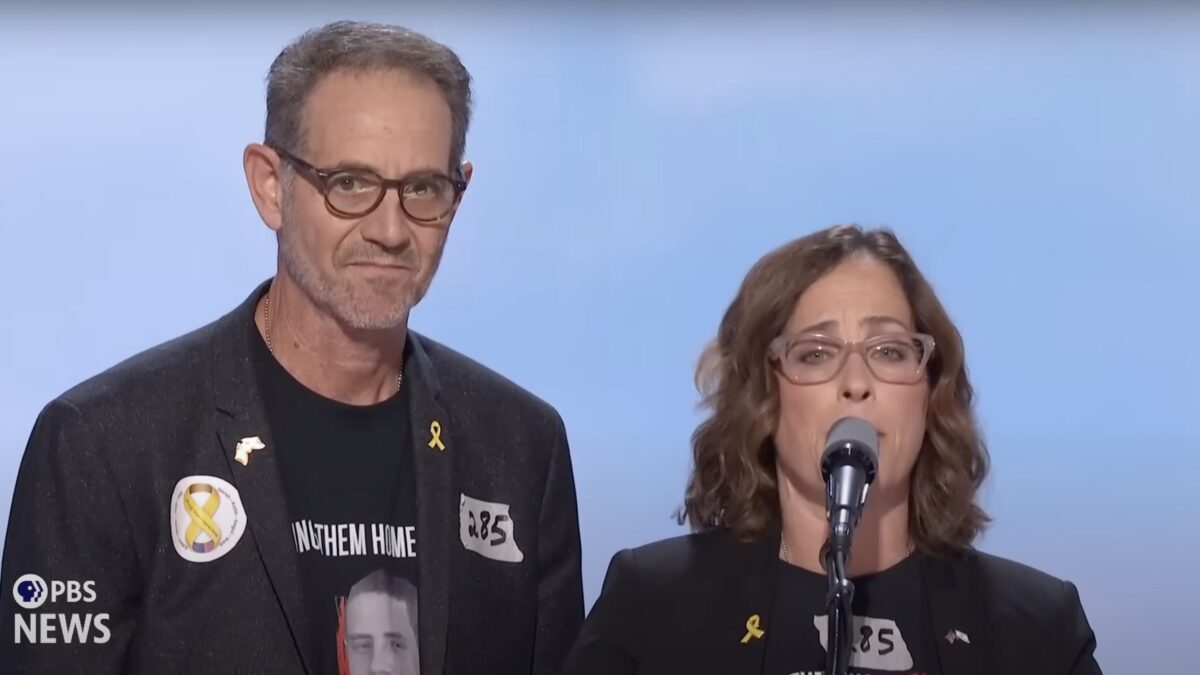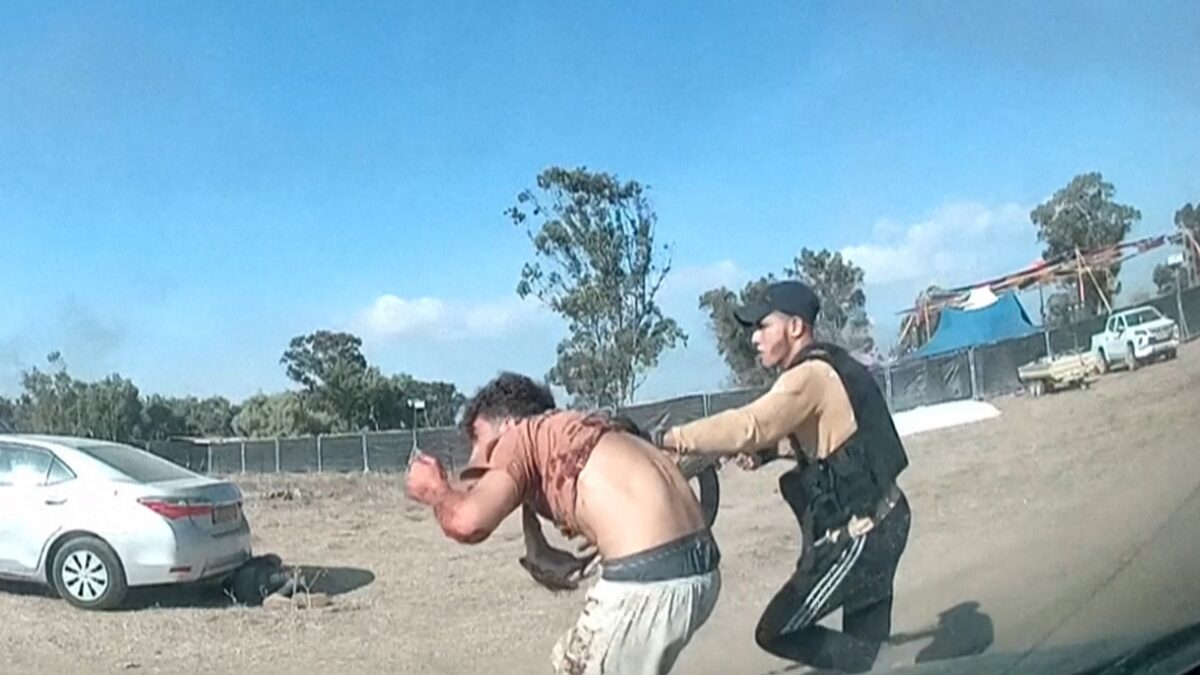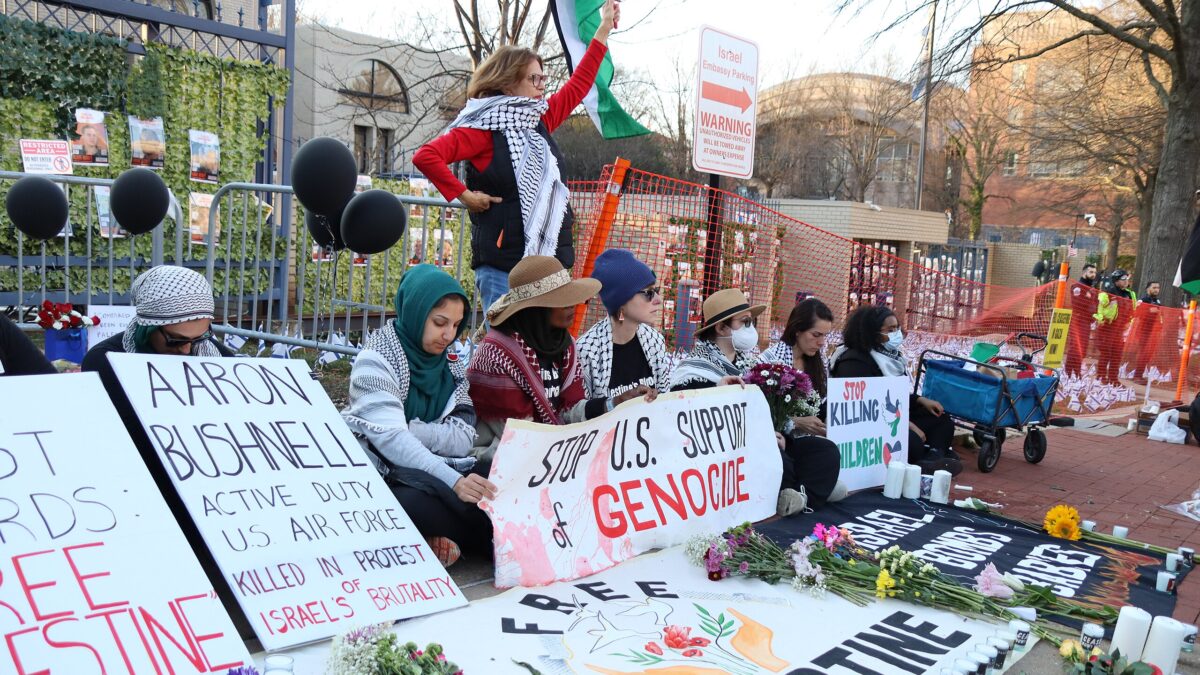
The calls for gun-control after the horrific mass-murder this week in Las Vegas are predictable, yet understandable, even if you believe their logic or objectives are deeply flawed. But every time something like this happens, an army of halfwits invariably rises to the occasion to make the same utterly inane observation, which goes something like this: “If this guy were a Muslim, CNN would be calling him a terrorist. But that won’t happen because he’s just a white guy!”
Let’s ignore the fact that the mainstream media salivate over any opportunity to associate murder with whiteness and Christendom, and pick the lowest of the low-hanging fruit: the word terrorism has an objective definition, and you can’t just slap the title on every murderer whose demographic irks you.
We start with the basics. Words have meanings. I say “Imagine a green dog,” and you imagine a green dog. Not a red Corvette, not a grey pistachio, and not an empty parking space in a Toys-R-Us parking lot. Terrorism is also a word, and thus has a meaning. I don’t tell my uncle to pass the terrorism at Thanksgiving dinner, because it would not convey the meaning I intended. A terrorist is someone who engages in terrorism. So, similarly, you don’t call a robber a terrorist.
What Terrorism Means, Exactly
But we’ve hit a roadblock. What could the meaning of this word “terrorism” be? To get to the bottom of the mystery, I refer to my handy book of word-meanings (also known as a dictionary in common English parlance). One dictionary defines terrorism as “the unlawful use of violence and intimidation, especially against civilians, in the pursuit of political aims.” Another says it is “the systematic use of terror especially as a means of coercion.”
The Federal Code says something eerily similar. It’s as if society has given certain words universal meanings. It calls terrorism “the unlawful use of force and violence against persons or property to intimidate or coerce a government, the civilian population, or any segment thereof, in furtherance of political or social objectives.” These definitions cover the breadth of the matter.
Moreover, different dictionaries will give different meanings for the same word, and it is reasonable to associate meaning with a word based on what one of the dictionaries says. But if you never find a dictionary that defines terrorism as a 5v5 team activity in which different participants seek to put a ball through opposing hoops, then it is ridiculous to go around saying that basketball players are terrorists.
Similarly, when some trash-bag of a human being opens fire on a crowd of innocents, it does not automatically make him a terrorist. He is vile, wicked, and profoundly evil, but he is neither a basketball player nor an empty parking space at Toys-R-Us. They are terrorists if and only if their act of murder falls within the semantic bounds of terrorism.
Without a known political or ideological motive and a known intention to coerce, you simply can’t go around slapping the label on mass-murderers for the sake of political convenience. Moreover, you can’t accuse people of prejudice because they are applying the word as the dictionary indicates.
So Let’s Apply This Meaning to a Few Cases
Puzzle solved, case closed. Now we can apply our new knowledge to determine who is or isn’t a terrorist. The Orlando nightclub shooter? Terrorist. The Dallas cop-killer? Probably a terrorist. The Unabomber? Very terroristy. The Las Vegas shooter? Cannot be determined yet—not enough information. What about Dylann Roof? It’s debated, because he fits some criteria and not others.
Remember the Fort Hood shooter? Not officially a terrorist, although also arguably so. You’d be hard-pressed to find a news article or FBI document from the time calling this Muslim guy a terrorist. The media and authorities tend to be consistent in applying this standard. The “epidemic of prejudice in reporting” is basically a figment of the imaginations of grievance-mongers.
This is very simple stuff, yet I regularly see otherwise intelligent folk fail to grasp this very simple stuff. If you’re going to insist on calling someone a terrorist, then at least try to make it seem like you’re doing the whole “word-meaning” thing. The label “terrorist” isn’t a participation trophy—you don’t get to arbitrarily lower the standards of qualification for the sake of making all the kids feel equally included.
It may make leftists sad that mass-murderers of Middle Eastern descent are disproportionately more likely to qualify as terrorists, but no one is implying that the non-terrorist shooter is a better person than he’d be had he been a terrorist as well. So don’t act like the media and authorities are giving these shooters a moral pass. They’re all evil, terrorist or not. But you can’t go around changing definitions for the sake of trying to squash non-existent prejudices.









